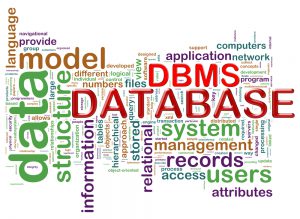
When creating an internal application or one developed primarily for your customers, a key consideration will be which database to use for storing, maintaining and managing your company data. For many organizations, it may be a simple decision where you already have databases used in existing applications and established expertise on staff for that particular database platform. However, when choosing a database management system we submit the following for consideration.
We suggest that new users choose from the larger providers in the DBMS market not only because they are tried and true (lots of documentation and support), but there is also a large talent pool fa-miliar with these systems to ease development, administration and maintenance over time. In addi-tion, there are many productivity tools available to assist with design, development and recovery. Database management Systems such as: IBM’s DB2, Oracle or Microsoft’s SQL Server provide a quality environment to store your application data. On the open source side, you do have some options such as, MySQL or PostgreSQL, but for large, mission-critical applications that require timely support, the open source alternatives may be risky for smaller companies.
Another recent development is NoSQL – basically data storage that does not rely on inter-related tables. NoSQL databases are increasingly used in big data and real-time web applications. There are a variety of options to choose from, with most of the leading candidates based on some form of Hadoop. For projects requiring large amounts of data and high availability, these “big data” solu-tions may be suitable. However, the NoSQL DBMS offerings are not for supporting typical, enter-prise applications. .
For more information on selecting an appropriate database management system for your business, contact Superior Technology online at www.superiortechnology.com or via phone at (845) 735-3555.
Comments are closed.
